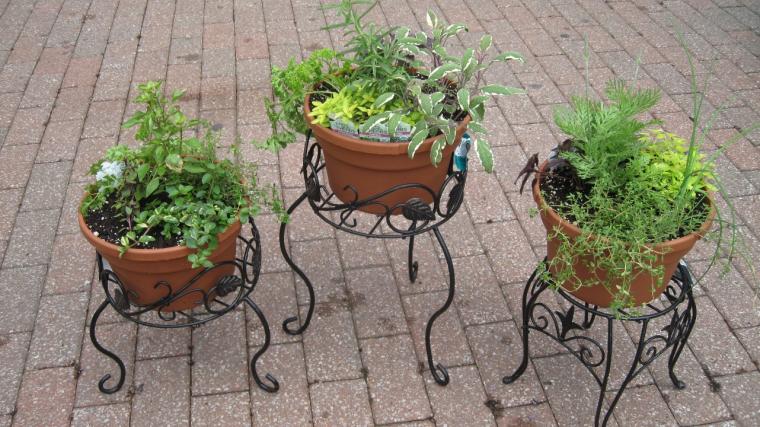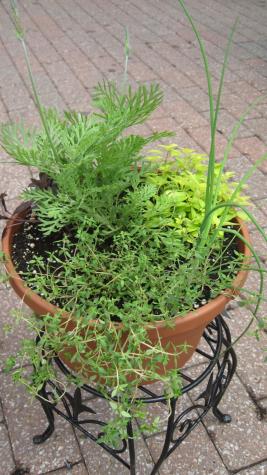BLUE SPRINGS, Mo. – Homegrown herbs may earn their keep better than any other crop in the garden, says a University of Missouri Extension horticulture specialist.
“Most commonly grown herbs are relatively pest-free and require minimal maintenance,” says Marlin Bates. “Couple that with the cost of fresh herbs at the supermarket and you can see why a small investment in herb plants this spring could save more on the food bill than many other plants.”
Aside from their relative ease and value, herbs offer many other benefits to gardeners, Bates said. “Many herbs have an ornamental value that often earn them a spot in combo planters or display gardens of nonculinary plants. The varying heights and textures of herbs can be a great addition to any planting, and the aromas of herbs can be enough to stop passersby in their tracks.”
Many gardeners grow the staple herbs like basil, rosemary, thyme, oregano and cilantro, but Bates says that drawing on centuries of culinary and therapeutic herb use provides many options beyond those gardenworthy standbys.
“Other herbs worth experimenting with include lovage, tarragon, savory, lemon balm, marjoram, sweet cicely, horehound, fennel, borage, bay and chervil,” he said. The uses of these herbs range from potpourri sachets to seasonings and entrée garnishes. Most of these herbs are perennial, requiring little more than a final harvest at the end of the season to put them to bed for the winter.
“Growing fresh herbs just outside the door gives an added flair to the smell of summer and this summer’s cuisine,” Bates said.
By planting the most common herbs, gardeners can save significantly at the store, he said. And by experimenting with a few less-common herbs, they can broaden their culinary arsenal.
For more information, including a comprehensive list of herbs for our region along with their descriptions, see the MU Extension publication “Growing Herbs at Home” (G6470), available for free download at extension.missouri.edu/publications/g6470.
Writer: Mildred Carter

